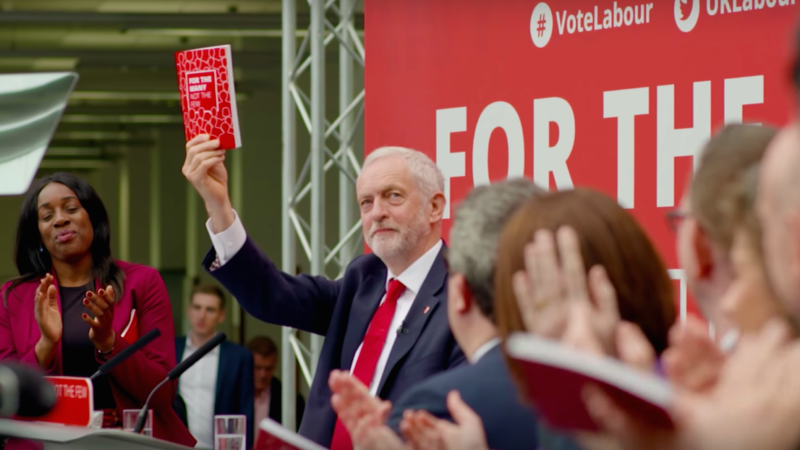
The next Labour government is already committed to creating inclusive and socially just local economies. And Jeremy Corbyn’s community wealth building (CWB) unit is now learning from the best practices of Labour councils in power across the country, which are already promoting a progressive economic agenda that delivers for the many.
Here in Islington, we are preparing to showcase the first fruits of our pioneering work as a council determined to ensure all its residents have a stake in their local economy. Our community wealth building approach is embedded in our ‘Fairer Islington’ agenda, seeking to ensure that economic, social and environmental justice sit at the heart of all of our inclusive economy policies.
People are often surprised that we concern ourselves with wealth building in Islington. After all, Islington’s national media image is a caricature of the wealthy metropolitan elite’s main residence. But too many of our constituents face economic and social hardship driven by Tory austerity and neoliberal economic policies.
Islington’s 2010 Fairness Commission reported that there are ‘two Islingtons’. Whilst we have some of the wealthiest people in the country living in the borough, we also have the fourth highest rate of child poverty. Levels of income inequality in Islington are higher than the London median, with incomes for the richest 10% of households likely to be over 10 times that of the poorest 10%.
Reducing these inequalities is our mission. Since 2011, we have been implementing a range of new municipalist policies – from taking public services back in-house and being one of the first accredited London Living Wage councils to setting up our own energy company, Angelic Energy, and pioneering ground-breaking planning policies to compel developers to deliver genuinely affordable housing for social rent.
More recently, we have been learning from Preston Council, where community wealth building practices with anchor institutions, supply chains and local wealth retention has been praised as exemplary by John McDonnell. The groundbreaking Preston model has paved the way for other councils to adapt community wealth building to their local contexts (because there is no one-size-fits-all).
Islington’s challenge is an unjust, unfair and unequal local economy that promotes rapacious developer-led growth, which prices out local communities and small businesses through high rents and high living costs. Indeed, the intertwined consequences of London’s globalised and financialised economy with associated gentrification have become one of the key the drivers of social exclusion and poverty.
Our bold approach to community wealth building mirrors our robust social housing policies, and uses Islington Council’s economic agency to tackle sky-high rents and the dwindling supply of affordable commercial space. How are we doing it?
Firstly, we have harnessed our power as a planning authority to negotiate and secure office and workshop space in new commercial developments, and so far we have secured approximately 4,000 square meters let to us at very low rates for 10-20 years and potentially in perpetuity. But we don’t stop there.
This high-quality office space will be managed on our behalf by a variety of carefully selected affordable workspace providers drawn from the co-operative, social enterprise and charity sectors. In a UK first, we are embedding social value in these contracts, with space given to providers at a peppercorn rent (free) in return for them offering workspace for below market rate and – crucially – creating long-term benefits for local people and businesses. This will deliver a range of education, training and employment opportunities for people including the long-term unemployed, mothers returning to work and young people without any qualifications, and it will target recruitment in areas of high unemployment.
The second way we are securing more affordable workspaces is by purchasing long leases on commercial premises, which will then be given to affordable workspace providers for free in return for social value outcomes that help local residents into good jobs and training. With the support of £1m match funding from the mayor of London’s Good Growth fund, we have just purchased leases on our first two premises on Fonthill Road, Finsbury Park.
Inspired by the Preston model and the worker and community co-operative enterprises in Cleveland, Ohio, our first affordable workspace provider will be Outlandish, a tech worker co-operative. We want Islington to be a leading hub for tech and digital co-operative start-ups specialising in ‘tech for good’ platforms and software. It is important to us that we support innovations in the social sector, countering the negative disruptions and extractive practices of the tech sector.
Local people are at the heart of our economic development approach. For too long, communities and residents have been excluded from the means and assets driving our economy. Our workspace providers will reach out into communities, creating pathways for participation and ensuring that their voice is both present and powerful in our inclusive economy.
The official launch of the new Fonthill Road space will be later this summer. But in the meantime, we will be inviting Preston’s community wealth building pioneer Matthew Brown, together with other friends and partners in our growing movement, to have a first look at our new affordable ‘tech for good’ co-operative space on July 12th. This will not only mark a new step forward in the collaborative relationship between Preston and Islington, but also showcase Corbynomics in action – in Jeremy Corbyn’s own backyard.




More from LabourList
Nudification apps facilitate digital sexual assault – and they should be banned
Diane Abbott suspended from Labour after defending racism comments
Labour campaign groups join forces to call for reinstatement of MPs